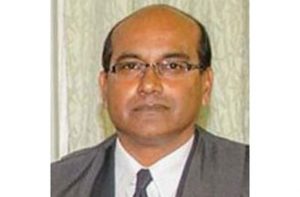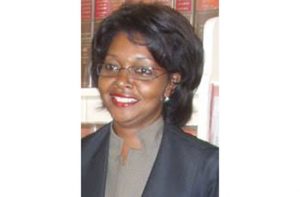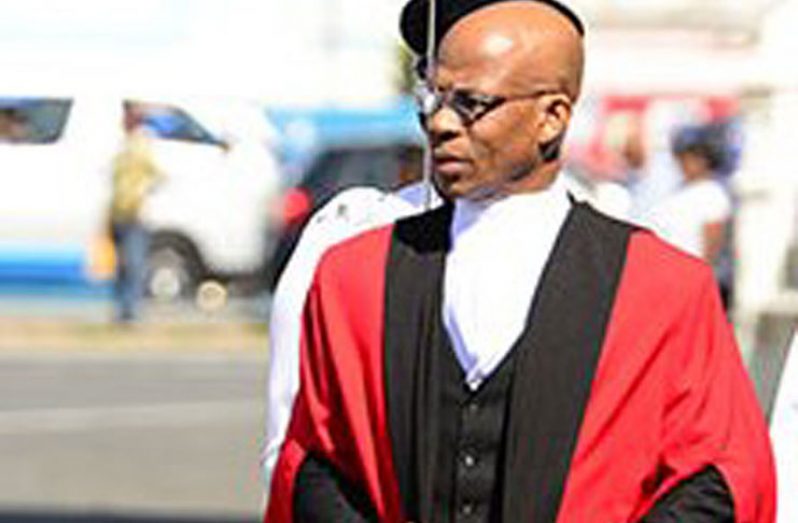…top coalition official urges as Court of Appeal hands down ruling today
A SENIOR official of the APNU+AFC Coalition is hopeful that the Court of Appeal would order fresh elections under a new list of electors.
The three-panel court will rule today on a series of orders being sought by the coalition regarding the March 2, 2020 polls. Should these orders be granted and the elections are nullified, the official said as a consequence the court should order fresh elections. “We have seen the Chief Elections Officer proffering what he called valid votes amounting to some 185,000 but we do not believe that those votes should be used to declare a winner, fresh elections under a new list would be the best solution to this crisis,” the official said.
Last week, when President David Granger was asked what should GECOM do given the report of the Chief Elections Officer which deemed the polls as massively flawed, he said that the Elections Commission could either instruct the CEO to compile a report for declaration, on the basis that the information contained in his report on the national recount is factual and credible, in its view, or it could decide that as a result of the “huge body of irregularities” cited in the report on the national recount, the basis does not exist for a declaration to be made.

“I think they can very well say that we cannot make a declaration, because the information indicates that the process has been badly flawed,” President Granger told journalists during an interview at State House. Such a move, he posited then, would land Guyana in “uncharted waters”. The Head of State added: “It is widely known that if a declaration is made, and an interested party feels aggrieved, it can go to the courts, but, if there is no declaration, I think we are [going to be] in a legal no-man’s land.”
With the country running low on funds due to the absence of a national budget, President Granger said that should the elections be nullified, a mechanism would have to be put in place to reconvene Parliament to allow for finances to be appropriated to keep the country afloat, as it manoeuvres the “uncharted” territory. Parliament was dissolved on December 30, 2019 to pave way for the 2020 elections. However, the President noted that any move to reconvene Parliament would require “some form of agreement” among the Members of the 11th Parliament. “I cannot at this point say what legal mechanism could be employed to reconvene the 11th Parliament,” he posited, while noting that not much progress would be made in the absence of a Parliament, should the elections be nullified.
On Saturday, in the Court of Appeal, Attorney-General and Minister of Legal Affairs, Basil Williams, argued that the Guyana Elections Commission (GECOM) clothed itself with the authority to determine the ‘final credible count’ of the General and Regional Elections when it enacted Order No. 60, but Kim Kyte-Thomas, the Legal Counsel representing the Chairman of GECOM, Justice (Ret’d) Claudette Singh, said no Order can supersede the Constitution, the Supreme Law of the Land, and therefore GECOM cannot pronounce on the validity and credibility of the elections.
In his virtual oral submission in the case challenging GECOM’s failure to decide on the final credible count, the Attorney-General told the panel of three judges, led by Justice of Appeal Dawn Gregory, that the Elections Commission has a duty and responsibility under Article 162 of the Constitution and Order No. 60, to determine whether the General and Regional Elections held last March were fair and credible.

Minister Williams submitted that while Kyte-Thomas, in defence of her client, argued that the Elections Commission could not have clothed itself with jurisdiction to determine the credibility of the 2020 elections, GECOM did just that when it used Article 162 of the Constitution and Section 22 of the Elections Law (Amendment) Act to bring Order No. 60 into legal effect. That Order, he posited, gave GECOM the jurisdiction to deal with credibility during the electoral process.
To prove his case, the Attorney-General invited the judges — Justices of Appeal Dawn Gregory and Rishi Persaud and High Court Judge, Brassington Reynolds — to have a closer look at the provisions of Order No. 60, the legal cover GECOM used to facilitate a 33-day national recount. He submitted that throughout the Order and its amendment, GECOM undertook the responsibility to arrive at a final credible count before the elections results are declared. In keeping with the established criteria to determine credibility, there was a reconciliation of the ballots issued with the ballots cast, destroyed, spoiled and stamped.
Further to that, the counterfoils or stubs, authenticity of the ballots, the number of voters listed and crossed out as having voted, the number of votes cast without ID cards, the number of proxies issued and utilised, the statistical anomalies and occurrences recorded in the Poll Books, were taken into consideration, and included in observation reports generated during the recount process, the Attorney-General pointed out.
“These are the powers that GECOM gave itself to determine the credibility of the Elections of March 2,” the Attorney-General put to the Appellate Court. He said, in particular, Paragraph 14 as cited in the addendum, establishes clearly the case for a “final credible count.”
The amended Order at Paragraph 14 states: “The commission shall, after deliberating on the report at Paragraph 12, determine whether it should request the Chief Elections Officer to use the data compiled in accordance with Paragraph 12 as the basis for the submission of a report under Section 96 of the Representation of the People Act, Cap 1:03, provided that the commission shall, no later than three (3) days after receiving the report, make the declaration of the results of the final credible count of the elections held 2nd day of March 2020.” According to Paragraph 12 of the Order, the matrices for the recount of the 10 Electoral Districts must be tabulated by the Chief Elections Officer, and a report submitted to the Elections Commission together with a summary of the observation reports for each district.
GROUNDS FOR ANNULMENT
Minister Williams was keen on pointing out that the Order provided the Elections Commission with the option of determining whether or not it should request the Chief Election Officer to use the data compiled as the basis for the submission of an elections report. The Attorney-General submitted to the Appellate Court that utilising that option, GECOM should nullify the elections, on the basis that the Chief Elections Officer, Keith Lowenfield, in his report, indicated that the credibility of the elections could not have been ascertained due to widespread anomalies, and cases of voter impersonation that were discovered during the national recount.
He said the Elections Commission should not have requested the CEO to use the data to compile an elections report under Section 96 of the Representation of the People Act, knowing very well that the elections were less than credible.
The Chair of GECOM, Justice (Ret’d) Claudette Singh, in requesting the Elections Report, said GECOM does not have the jurisdiction to investigate the anomalies, but the Attorney- General said Elections Commission has a duty to call off the elections, in light of the credibility issues. “GECOM cannot make an order and [revert] from it; GECOM has to stay the course,” Williams argued, while maintaining that under Article 162 of the Constitution, GECOM, upon failing to conduct a credible and fair election, can annul it.



.jpg)










